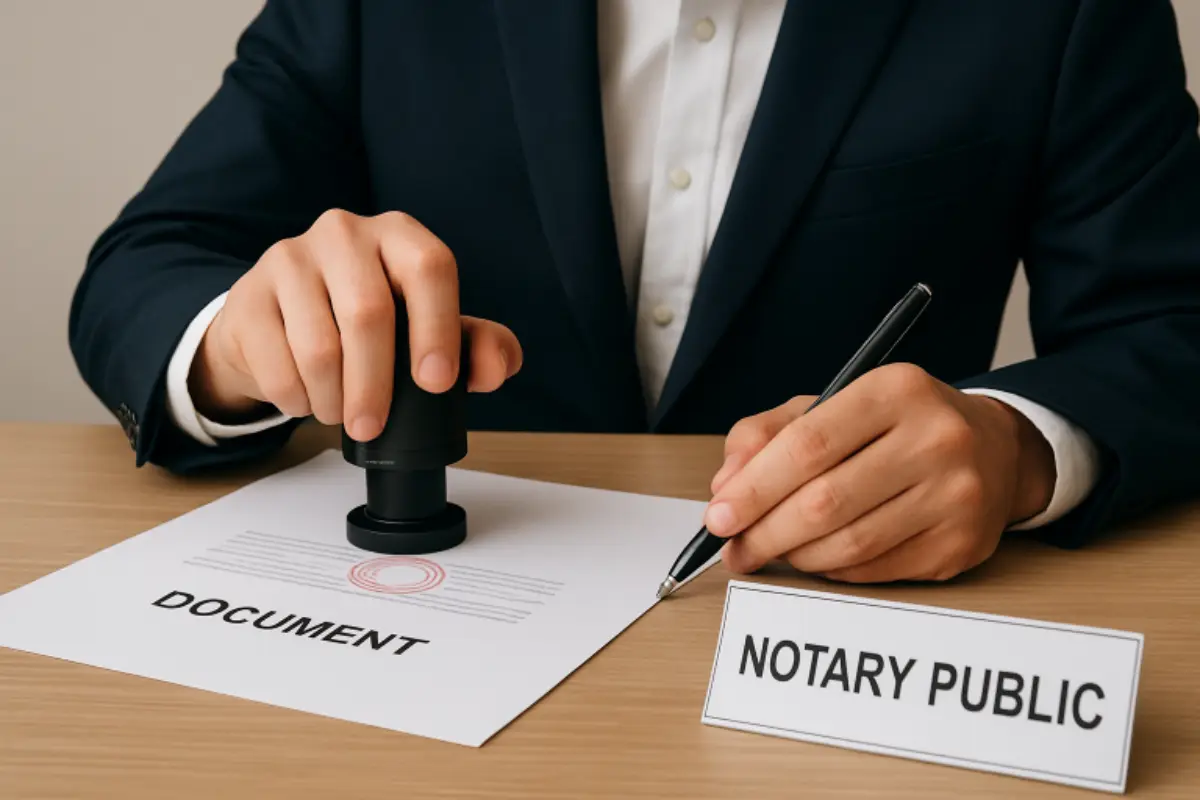Becoming a notary public not only enhances your professional credentials but also allows you to serve your community in a significant way. The notary public role requires both responsibility and integrity as you witness important documents and help prevent fraud.
If you’re considering this rewarding path, you’ll find clear guidance and streamlined steps ahead. For prospective notaries in Nevada, one essential aspect is acquiring the proper tools. If you are searching for where to buy notary journal for Nevada notaries, credible suppliers make it simple to start your notarial journey fully prepared.
Adhering to your state’s unique regulations is crucial, but many requirements are widely shared nationwide. Nurturing a clear understanding of the process and gathering the correct supplies from reputable sources ensures your transition into notary services is efficient and stress-free.
Contents
Understand the Role of a Notary Public
A notary public acts as a neutral witness during the signing of important documents, such as legal contracts, affidavits, and financial statements. Their presence helps safeguard against identity theft and fraud by verifying the identity of signers and maintaining detailed records.
In addition to witnessing signatures, notaries often administer oaths, certify document copies, and handle affidavits or statutory declarations. Their work is critical for legal processes, real estate transactions, and many government procedures.
Meet the Basic Requirements
To begin your journey as a notary public, you must fulfill several baseline requirements. These typically include:
- Being at least 18 years old
- Holding legal residency in the state where you wish to practice
- Maintaining a clean criminal record without felony convictions
- Proficiency in reading and writing in English
Requirements can change slightly depending on your location, so always review your specific state’s notary commissioning authority for detailed eligibility criteria. Additional factors, such as prior notary misconduct or citizenship status, might also influence your eligibility.
Complete the Application Process
Once eligibility is confirmed, you can begin the application process. This generally involves:
- Filling out the official state application form with accurate, up-to-date information
- Paying the required state-specific application fee
- Passing a background check, which is mandatory in several states
Some states also request personal or professional endorsements. Promptly provide all necessary documents and signatures to ensure a smooth application review process.
Undergo Training and Pass the Exam
Education is a foundation of ethical notarial practice. Most states, including California and New York, require applicants to complete a notary course, which can range from three to six hours. The training covers vital areas like state notary laws, common procedures, and professional ethics. Following this, many states mandate a written exam to test your understanding of these principles.
Obtain a Surety Bond
A surety bond serves as financial protection for the public, covering any potential losses from improper or illegal notarization. The required bond amount varies by state ($5,000 to $15,000 is typical), and some states also require additional liability insurance. Notaries should remember that a bond doesn’t provide personal protection; instead, it demonstrates your commitment to ethical conduct and public trust.



